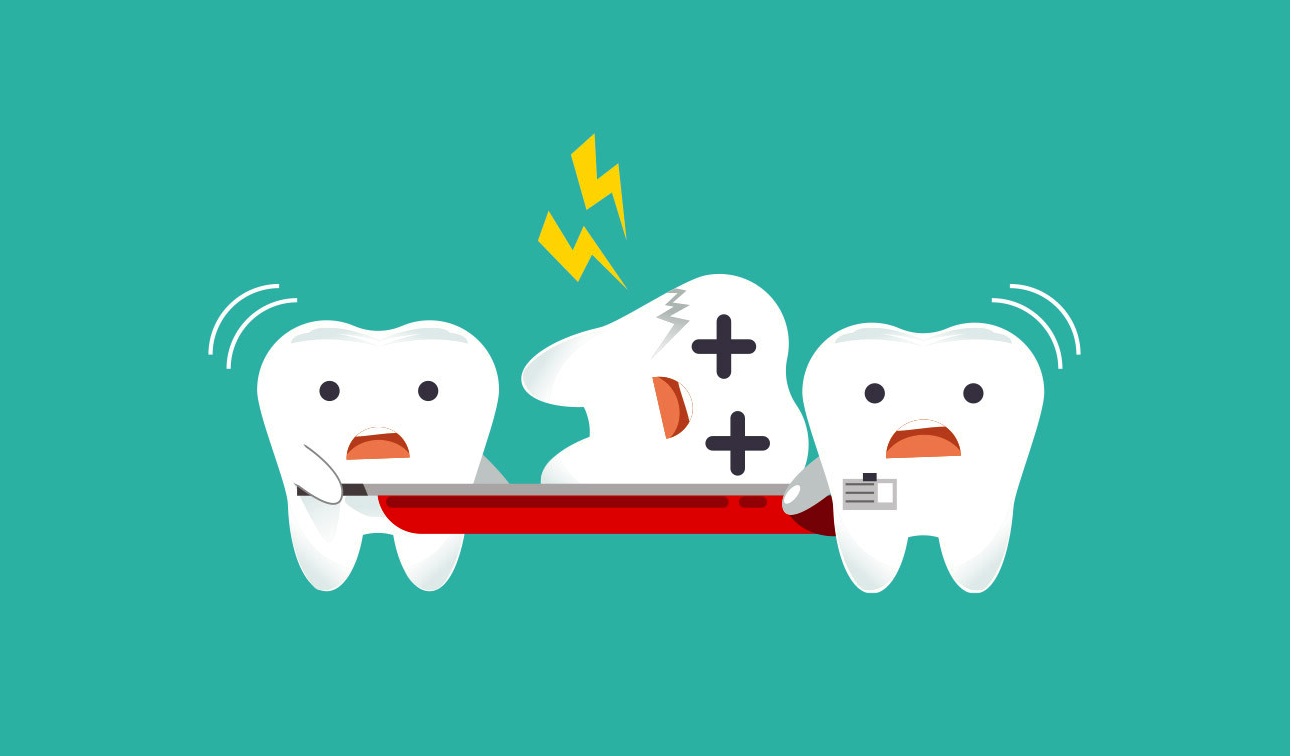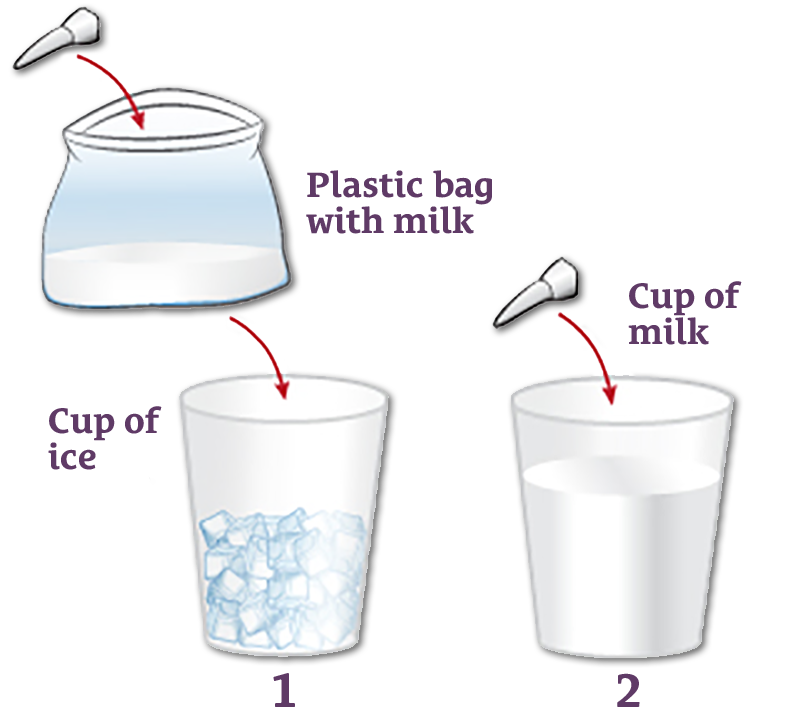HELP! What Should I Do If I Lose an Adult Tooth?
How to handle this and other common dental emergencies outside of dental office hours
Without a doubt, our smiles are one of the most integral piece of our outward appearance. That being said, accidents happen and knowing how to handle an oral crisis can save you time, money, and physical distress.
For this blog, we’re discussing some of the ways you can take care of yourself should something happen as well as preventative measure that will help you avoid different dental emergencies.
What is a Dental Emergency?
How Do I Know If I Have a Dental Emergency?
There’s no reason to suffer through pain caused by a tooth. In extreme cases of discomfort, one may even vomit which contains acidic bile that can strip the enamel of your teeth. There’s no need to be scared. By paying attention to your oral health and effectively handling dental danger, you can avoid serious pain and retain your smile.
Generally speaking, a dental emergency is a situation that requires immediate treatment to relieve pain, stop bleeding, or prevent the loss of a tooth. Oftentimes situations involving chipped teeth or the loss of crowns or fillings does not necessitate urgent care unless accompanied by significant pain.
A few examples of a dental crisis that need emergency care include:
Bleeding of the mouth should cease within an hour. If your mouth won’t stop bleeding, you may have a dental emergency!
Loose adult teeth, even without pain, are considered a serious issue in need of attention.
Abscess or serious infection of the mouth can escalate to life-threatening conditions.
Tooth avulsion, or a tooth that has been dislodged from its socket, should be taken care of immediately for optimum chances of saving the tooth.
Bleeding that won’t stop within an hour will require an emergency dentist visit. Until you can be seen, use a thick gauze over the bleeding area and apply pressure. Avoid rinsing, drinking, eating, sucking, spitting, and smoking.
Saving a Tooth That Has Been Knocked-Out
Should you lose an adult tooth at the root or socket, there are a few steps you can take to preserve it before you are able to see the dentist.
Carefully handle the tooth only by the crown, or part that is typically exposed in the mouth.
Rinse off the root area only if it is dirty. Scrubbing or overly cleaning can remove important tissues that are still attached.
Depending on the state of injury, gently put the tooth back in place but do not push it into the socket. To keep the tooth in place, close your jaw while lightly biting on the area of injury to keep it held in place. You may also hold tooth with the tip of your finger. If you are able to do this within an hour of avulsion, your chances of saving the tooth and is greatly increased.
If returning the tooth to its socket is not possible, you have a couple options on how you can preserve it.
OPTION A: Place the tooth into a bag filled with salt water or milk. Next, rest the bag atop a bowl of ice. Do not expose or submerge tooth in tap water. Chemicals present in tap water will damage the tooth and prevent it from being returned to place.
OPTION B: Put the tooth into a small cup of cold milk. This will also help maintain the moisture of the tooth and increase your likelihood for successfully restoration.
Milk does more than strengthen your teeth—it can save them too!
As soon as you are able, call us so we can assist you further and save your tooth.
Spotting an Abscess or Infection
Infections of the mouth should be taken as seriously as any other bacterial infection in the body. Abscessed teeth can lead to tooth loss, damage of the jaw bone, issues with sinuses, infection of the brain, heart conditions or damage, and in some cases, death. As scary as it may be, a tooth abscess can be treated when properly cared for and spotted early. Knowing the signs is the first step to bringing your smile back to its former glory.
There are four kinds of dental abscesses—periapical which forms underneath the tooth in tissue known as ‘pulp’, gingival found in only in the gum tissue, pericoronal that forms around impacted or partially erupted teeth, and periodontal which attacks both the supporting gum and bone.
Signs and symptoms to watch out for:
Redness that is concentrated in one or more areas of the mouth
Severe Pain that does not subside within one to two days
Tooth Sensitivity to hot and/or cold drinks or foods
Swelling of the gums that does not improve within a week
Fever
Difficulties Breathing and/or Swallowing
Pus that emits from the swelled area. Abscesses are similar to pimples and can rupture.
Remember, catching any bacterial infection early is your best chance against these serious and life-threatening ramifications that accompany an untreated abscess. If you think you are suffering from a potential abscess, set up an appointment to be seen immediately. Depending on the severity of infection, the area will be drained via a small incision in the swollen gum tissue or a root canal may be performed. After the area has been successfully cleared of infection, antibiotics will be prescribed to further aid in the healing process.
If you are suffering from severe symptoms of an abscess and cannot reach the dentist, DON’T HESITATE TO VISIT THE EMERGENCY ROOM! These may be indications that the infection has spread to other parts of the body.
Combatting Dental Situations That Don’t Require Emergency Dental Care
Sometimes what may seem like a dental emergency does not qualify as something that requires immediate attention—which is not to say that the condition should not be taken seriously.
In the following situations, calling the dentist first is the right call before panicking about a potential emergency. Most of the time, depending on the severity of the situation, you can make an appointment to be seen relatively soon for evaluation and corrective help. In the meantime, here are a few methods of handling temporary discomfort caused by common concerns and circumstances.
Cracked, Damaged, or Lost Crown/Filling
A frequently occurring problem, losing, or damaging crowns/fillings is not as detrimental or dangerous as one may think. If possible after the restorative piece has broken, save it in a zip-loc bag and bring it to the dentist for reapplication. Otherwise, make an appointment for as soon as possible to be fitted for a new piece.
Chipped or Broken Tooth
If one or more of your teeth has been chipped or broken, scheduling an appointment to assess the damage is a safe bet regardless of circumstance. Should this occur, rinse your mouth with warm water and apply a piece of gauze to the site if there is bleeding. For pain relief, apply a cold compress to the outer area of your face closest to injury. This will reduce any swelling.
TOOTH TIDBIT: Be careful about what you put in your mouth. Aside from sugary and crunchy foods like candy, try to avoid tough meats and bad habits like biting your nails or chewing on pencils/pens. Another surefire way to protect your pearly whites is by using a mouthguard when playing sports or if you’re prone to tooth grinding/clenching!
Orthodontic Troubles
For those with braces or other orthodontic devices, hardware like wires can come out of place and cause discomfort. When this occurs, try pushing broken wire into a more tolerable position. If this doesn’t work, cover the exposed end with orthodontic wax, gauze, or a small cotton ball. No matter what you do, do not cut the wire. You don’t want to risk a choking/swallowing hazard!
If a retainer or other temporary orthodontic appliance has been lost, broken, or damaged, schedule an appointment for a new one to be fitted and made. Do not force a dental appliance in! Doing so may cause additional damage and pain.
Whatever the circumstance, the first step of solving a dental difficulty is by calling our office and seeking advice. Don’t forget that the best way to protect your teeth is with prevention methods like brushing, flossing, and scheduling regular dental treatments at your dental clinic. If you’re concerned about your teeth, gums, or other oral conditions, the Alexandria Smiles team is here to answer any and all of your questions!
If you’re looking for more, check out some of our other relevant blogs!
What Can You Do to Help Sensitive Teeth and Gums?
The link between two seemingly unrelated issues.
Brushing and Flossing Correctly to Avoid Future Dental Problems
How to properly care for your teeth so your smile lasts a lifetime.
The Truth about Root Canals
Why you shouldn’t be afraid of this infamous procedure.








